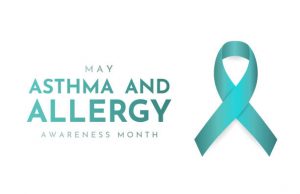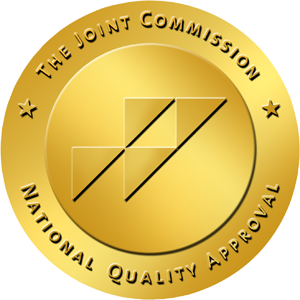How Can a Pharmacist Help Manage Your Asthma and Allergies?
 National Asthma and Allergy Awareness Month is observed annually in May, a peak season for people with asthma and allergies. If you have either condition, take some time to learn how our pharmacists can help you breathe easier with Carmichael’s pharmacy services.
National Asthma and Allergy Awareness Month is observed annually in May, a peak season for people with asthma and allergies. If you have either condition, take some time to learn how our pharmacists can help you breathe easier with Carmichael’s pharmacy services.
What is Asthma?
Asthma is a long-term respiratory condition that affects the lungs. It causes inflammation and swelling of the airways, which results in asthma symptoms such as trouble breathing, wheezing, coughing, and chest pain or tightness.
Asthma symptoms vary from person to person and can be triggered by different things. The most common allergy triggers include allergens, pet fur, respiratory infections, fumes, smoke and air pollution. Certain food and exercise also can trigger asthma symptoms in some people. There is no cure for asthma, and a severe attack can be fatal. However, appropriate treatment and management can help control symptoms.
How can a pharmacist help with asthma and allergies?
A licensed pharmacist at Carmichael’s Retail and Compounding Pharmacies can be an important part of your healthcare team. Our knowledgeable pharmacists provide medication therapy management (MTM) services, regularly work with patients and prescribing doctors, and reduce medication errors.
Pharmacists offer invaluable expertise; however, their guidance should not replace the advice of your doctor. Although you are ultimately responsible for managing your health, here are five ways Carmichael’s Pharmacists can assist patients with asthma and allergy management services:
- Explain what the medicine is for, how to correctly use an inhaler, side effects that you may experience and what to do if you have side effects.
- Provide guidance on taking medicines as directed and over-the-counter medicines that may interact with prescription medicines.
- Check a patient’s drug allergy status before dispensing a prescription and determine if ingredients in medications contain a known allergen.
- Suggest and find ways to reduce prescription drug cost or copay such as generic medication options, coupon savings or rebates.
- Recommend ways to reduce exposure to outdoor allergens and triggers in the home and inform you about products designed to control allergens.
If you have an allergic reaction or side effects to a medication, notify your doctor and pharmacist. They can work together to provide an alternative.
Need to fill a prescription for asthma or allergy medications? Contact us for personalized pharmacy services and support you can count on at Carmichael’s Retail and Compounding Pharmacies.




 Accredited/Certified by The Joint Commission
Accredited/Certified by The Joint Commission